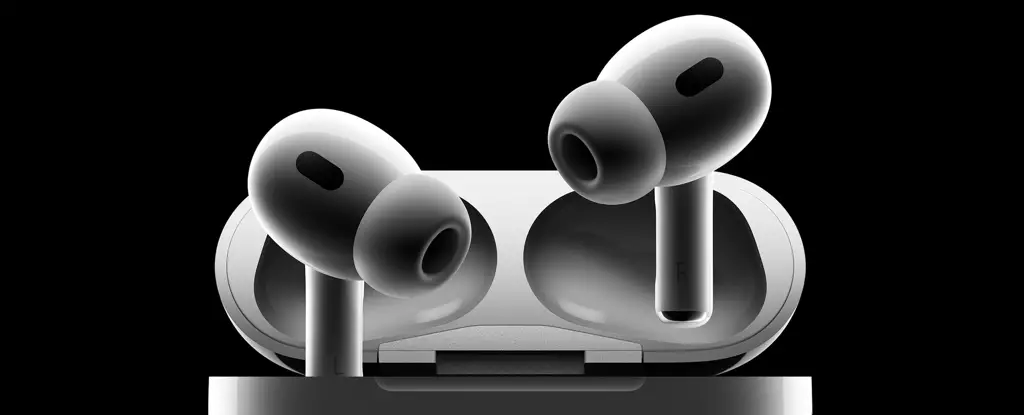In a significant breakthrough for wearable technology and healthcare, Apple Inc. has received authorization from the U.S. Food and Drug Administration (FDA) to enhance its AirPods Pro 2 with features that allow them to function as accessible hearing aids. This development comes at a time when hearing loss is an increasingly prevalent concern, affecting millions in the U.S. alone. By integrating hearing support directly into its popular AirPods line, Apple may be poised to disrupt the traditional hearing aid market, offering a cost-effective alternative for users with mild to moderate hearing loss.
This initiative highlights a growing trend within the tech industry, where companies are expanding their product offerings to encompass health-related functionalities. The FDA’s endorsement of Apple’s new feature underscores the potential of consumer electronics to provide medical benefits, shifting the perception of hearing aids from specialized medical devices to everyday accessories that promote health and wellness.
Pricing is a significant consideration in the hearing aid sector, where costs can be prohibitively high. Apple’s AirPods Pro 2 are priced at $249, considerably lower than the average clinical-grade hearing aids, making them more approachable for a larger consumer base. As users increasingly seek affordable yet effective solutions for hearing support, the Apple integration could create substantial market competition, prompting traditional hearing aid manufacturers to reevaluate their pricing and product strategies.
Moreover, the convenience and usability of the AirPods Pro 2 present an attractive option for those who might be hesitant to pursue conventional hearing aids. The accompanying software update allows users to conduct a hearing test using their iPhone or iPad, fostering a personalized experience that tunes the earphones to an individual’s unique auditory profile. This process, which takes about five minutes, represents a significant departure from traditional methods of fitting hearing aids, which often require professional assessments.
Apple’s foray into hearing health is not an isolated effort but part of a broader strategy to interlink technology with personal health monitoring. The AirPods Pro 2 will connect seamlessly with the Apple Health app, where users’ hearing profiles are stored securely. This capability extends beyond simple auditory assistance; it includes an adaptive sound feature that automatically adjusts audio settings for media consumption—like music, movies, and calls—without requiring manual input from the user.
The commitment to enhancing health and wellness through technology is evident in Apple’s product ecosystem. Their devices, including the Apple Watch and iPhones, consistently add features that promote health awareness and proactive management. For instance, the Apple Watch helps users monitor their heart rate and detect irregularities, while also providing alerts for harmful noise levels that could contribute to hearing damage.
With over a billion people globally experiencing mild to moderate hearing loss, Apple’s innovative solution promises to extend its reach and positively impact public health. The response from advocacy groups, such as the Hearing Loss Association of America, has been overwhelmingly positive, emphasizing the importance of creating accessible solutions for individuals seeking help with hearing challenges.
The integration of hearing support into products that consumers already own could significantly change perceptions of hearing loss and create greater acceptance of hearing aids as a norm rather than a stigma. Achieving public health goals requires not only innovative technology but also an attitudinal shift towards the acceptance of hearing aids and other assistive technologies.
As Apple rolls out these new features in over 100 countries, the anticipation builds around how this will transform the landscape of hearing assistance. General acceptance and adoption of these new functionalities depend on the continued collaboration with health authorities and delivering a product that meets the needs of users effectively.
The success of the AirPods Pro 2 as a hearing aid alternative could pave the way for further advancements in health tech integration across various sectors. With growing awareness of the intersection between technology and health, Apple is establishing itself as a key player in a rapidly evolving market, one where user well-being is increasingly intertwined with everyday consumer products.
This innovative move by Apple signals a changing tide in the approach to hearing health—combining efficiency, affordability, and accessibility, potentially redefining the future of auditory care for millions around the globe.


Leave a Reply